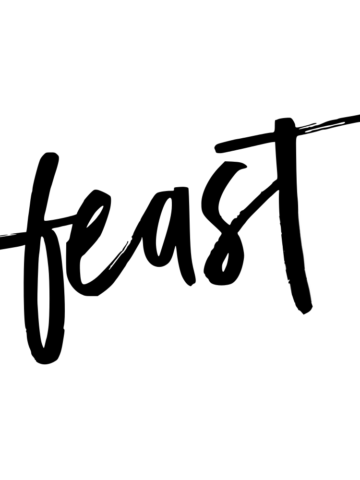The Site Info page introduced in the Feast Plugin 9.4.0 helps recipe sites define their E-E-A-T. This helps both readers and search engines better understand what your site is about what what niche you specialize in.

It does not currently automatically integrate anything, it's just an initial setup for us to develop on. We're working on making these better integrated with WordPress, Yoast, and the Feast Plugin.
Yoast
Filling out the proper schema and social profiles provides Google with the necessary information to associate social channels with your site, and begin to a knowledge panel around your site.
You'll also find the social profiles
E-E-A-T
Defining your specialities helps to identify your E-E-A-T by clarifying your experience, expertise and authority in:
- cuisine (American, Mexican, Indian, Italian, etc)
- diet types (eg. vegan, gluten free, paleo, etc)
- cooking method (air fryer, instant pot, slow cooker, etc)
See this stanford.edu document on establishing online credibility.
Notes from TopHatRank webinar
These are notes from the Unlocking Advanced Strategies for EEAT on TopHatRank:
Note: these are our notes/interpretations and don't reflect the content or opinions of anyone on the webinar. We highly recommend that you watch the webinar itself.
- every query has some E-E-A-T weighting, more so towards YMYL queries (your-money-your-life, such as health, finance)
- this means that health/diet-oriented queries are especially relevant
- quality rater guidelines can be found here and is worth a read-through, and there are recipe-specific examples
- What is E-E-A-T, why should I care? TopHatRank
- how do you demonstrate experience?
- an author bio (about page) is key, include experience, maybe use chatGPT to rewrite it to focus on experience
- possibly: the quantity of high quality recipes on your site shows experience
- getting referenced on other sites as "the best at ___" helps to build knowledge graph
- niching-down is very important for smaller sites to develop an "expertise"
- topical depth gets recognized over time, as content is built out and internally linked and properly categorized
- page experience is important and underpins E-E-A-T because of user experience
- users should be able to find the actual content they land on the site for
- jump-to-recipe or scroll-to-recipe buttons is a bad user experience if the user lands at an ad instead of the recipe
- the "arrival unit" from ad platforms is a big culprit of this
- prioritize intent: the user wants the ingredients and instructions, so put that into the content and not just the recipe card
- ChatGPT tip: paste the page URL in and ask it what the intent of the user is who visits this page
- ask for 3 tips to improve the user intent
- prompt it to write a helpful introduction
- idea: step-by-step videos that encourages users to step through the recipe and spend time on each step in the content, where the ads are
- low quality content does bring down the overall quality of a website
- Sudden drops on individual pages can be indicative of quality penalties, pay close attention to drops around:
- December 15, 2022
- November 7, 15, 2022
- First week of January, Feb, March, April, May, June 2023
- If you want site-specific audit for content audits, contact TopHatRank
- video is a powerful tool to showcase experience and experience and is high on user experience
- On April 13, video thumbnails were removed from Google search results because videos are not the primary component of a recipe query
- Other recipe/food content that can demonstrate expertise: seasonal planning guides, produce guides
- guest posts and recipes posted to relevant third party sites that are high authority and already established, helps establish third party signals and improve authority
- this is for brand exposure, not links
- YouTube Shorts are likely to be a high impact option in the future
- For sites with multiple authors, sometimes individual author pages make sense and sometimes a single brand page that features the authors is fine
- see the quality rater guidelines for author bios
- show places you've been referenced
- discuss your experience and background
- keep low-relevance information minimal (eg. family, vacations, hobbies)
- link to your social channels
- Continually look at what sites Google is ranking for queries and figure out why they're ranking
- people who simply collate and summarize information without adding value are going to struggle - make yourself someone that people will actively search out
Can you offer something to searchers that they actively want to seek out and find useful?
Marie Haynes
We do it [factor in E-E-A-T] every single query and every single result, pretty pervasive throughout everything we do.
Hyung-Jin Kim, VP of Google Search
See the Creating Helpful Content Book out now by Marie Haynes.


Leave a Reply